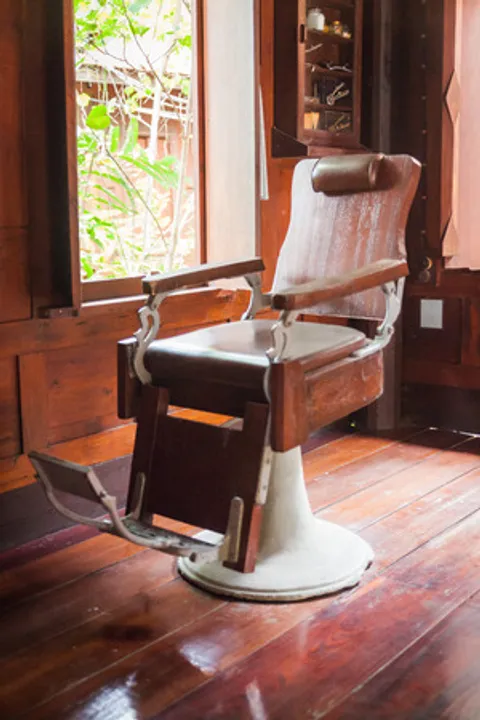Is Private Practice for You?
When Shingles Are a Good Thing

weedezign/123RF.com
And the English teacher takes off 10 points for subject-verb agreement…
For those who still remember what they learned from their English minimum requirements during those science-heavy curricula, we’re not talking about varicella zoster here, or the title would be “When Shingles Is a Good Thing,” which it never really is. (- 10 points for dorsal nerve root viral masochism.)

Iracha Borisudhiyangkun/123RF.com
We’re talking about “the” shingle—singles one at a time, which refers to the collection of physicians who go out on their own, putting their name and their brand new medical practices on the line. The expression goes back to the good ol’ days when the physician—just as likely to be the town barber, too—put his name on a leftover roofing shingle and hung it up. There it was, proudly announcing his services, for those who needed both a haircut and some salve to put on that mysterious rash.
Times have changed
Barbers do their own thing now. And as different as varicella is from the tar that covers the shingle, the practice of medicine has changed just as much. In spite of that, of all the types of practice you will consider, the one that today is still the most seducing is opening your own private practice—hanging up your shingle.
“It’s good to be king”

Pawe? Szczuka/123RF.com
As both ">Tom Petty sang and ">Mel Brooks depicted on screen, “It’s good to be the king.” As the sole proprietor of your own private practice, you really are the king. You embark on building your own empire. Of course, sometimes kings end up with their heads cut off.
Being the king is a good life, until they roll out the Guillotine

Isaias Ibanez/123RF.com
You are the captain of the ship; you make the ship go. Anyone can call in sick, but if you call in sick yourself, the ship stops. The practice of medicine does not stop, so that means someone else will have to cover your patients while you’re out. You’re going to be writing someone a check, which is counterproductive to the bottom line. This is the reality of the pros and cons of a sole proprietorship. It is a business. While you’re seeking fulfillment in noble ways within the noble profession, the bottom line is the real boss, whether you think you’re the boss or not.
The pros and cons:
- You practice exactly like you want.
If you don’t want to accept a certain insurance company’s patients, you don’t have to. In the beginning, of course, you will; you will take any and all patients from anywhere. This means you will be at the mercy of their pay formula. Also, you cannot cherry-pick which patients you want from an insurer, be it a private megamonster like Blue Cross/Blue Shield or the government (Medicaid and Medicare). You have to take the good with the bad. (A ridiculous but very illustrative example would be having to accept a patient who has sued you recently.)
- You can hire and keep the people who you like working for you, and you can pass on or fire the people you don’t like working for you.
A rude receptionist can cost you hundreds in a day and tens of thousands in the long run! Not only will the patient ill-treated by this point of first contact not come back, neither will any of his or her friends and relatives referred to you down the generations of patient turnovers. You will find negative reviews creeping into your Yelp or Healthgrades.com ratings. A private practice’s best growth potential still depends on patient-to-patient referrals. Each patient is like a pyramid, and pissing off a single patient can cut off the potential stream of referrals to follow—and that stream is exponential.
On the other hand, a terrific person who deals with your patients is a patient magnet. Each happy person will refer two (and those two, four; those four, eight; and those eight 16, and so on).
- You don’t need anyone else’s permission to buy that great piece of equipment you need to practice according to your standards.
Go ahead. Buy it. Cool! The flip side comes when it breaks—and it will at the most inconvenient, patient-jammed time. You are the one who has to take the hit. A $4,000 ultrasound head is a really bad surprise when you have a dozen ultrasounds scheduled that day with your ultrasonographer.
- You control the budget.
Depending on how you manage things, you will likely be the biggest earner in the company, taking more money home than anyone else. But it’s also true that the budget will control you. The biggest pockets around are yours and yours alone. Sometimes you may reach in to find the pockets have gotten smaller, especially after forking up the money that month for that broken ultrasound head. It all comes down to overhead vs. income, and if the overhead swells, the income dips, or both, the bottom line becomes a harsh reality. There is the possibility, as you continue to pay everyone on your team, that everyone but you gets paid that month.
On the other hand, when all goes right, you’ll be buying German cars instead of making due with that clunker whose “service engine” light won’t go off no matter what you do.
- You determine your lifestyle.
At some point you will be able to replace “live to work” with “work to live,” and your family will thank you for it. The gamble of private practice is big, but so are the rewards, and you’re the one who gets to decide how much to put on the pass line. And the further good news is that if you fail, you can either try again or you can choose another type of practice where someone else has the liabilities, such as becoming an employee somewhere. Your degree makes you hirable no matter what, although you just might have to do with a Jetta instead of a Carerra.
- The victories are all yours.
When a patient is in serious trouble and you pull him or her through, you get all the credit—not the Mayo Clinic, say, if you had worked for them. This is the true fulfillment of medicine, the crowning achievement in the doctor-patient relationship. The flip side, of course, is that you get the blame for everything, from true malpractice (“Oops1”) to the mere complications your patient interprets as malpractice.
Making yourself irreplaceable
When you’re the king, you are irreplaceable. If you go away, the kingdom dies. This is different from being an employee, hospitalist, junior partner, or any other type of practitioner. Busy breeds busy, and that one patient for whom you work hard and from whom you get great results will send friends, loved ones, and neighbors. This is the spiral-up of success and it feels really good. It’s also really fun, the thing that makes private practice so enjoyable.
Not for the faint-hearted

milkos/123RF.com
Starting a private practice is for the young and the strong. It really cannot be done after a career as another type of practitioner. If you’re going to start your own private practice, the time to do it is on the front end, because that’s when you’re most likely to survive and learn from the med school of hard knocks. If you pull it off successfully, however, it’s really a professional fulfillment like no other.
Related Posts
